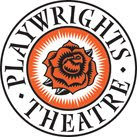With the 26th Annual Madison Young Playwrights Festival just a few short days away, we are buzzing about with rehearsals, revisions and program printing. Here is what our Director of Education and Festival Director, Jim DeVivo, had to say in the program.
As I have listened to discussions about the state of education at home and across the nation, I have become aware of the great number of new (and “new”) concepts and programs that proclaim their potential success because they “put students first.” In my fifteen years in education, I have come to find that measuring success in student learning can be as varied as each individual student. While some of these programs have potential, rarely do they reference specific student needs, nor do they involve any student input. I am not certain that any one approach can be the great panacea for which we seem to be so desperately searching, especially if it does not truly put students in a primary position.
We have found through our creative arts programs that placing students at the center of the creative process can influence them in ways that provide for successful individual student learning in the present and beyond. In the role of playwright, students have the opportunity to exercise initiative, to make decisions, and to collaborate with professionals to create a piece of theatre. The act of collaboration alone is an essential skill for a students’ learning, but additional skills and knowledge and personal characteristics learned can be as varied as the students themselves can.
Over the years, some of our past young playwrights have shared their experiences with us immediately after the program’s conclusion and after having a few years to reflect on the program’s impact. Here is just a sampling of what some former young playwrights have to say:
· “(The actors) dedication to my work and their intellect with the piece brought my confidence back in a heartbeat… that's what this experience was all about: real actors taking my real work very seriously. This was invaluable to a young artist like myself. It made me feel like I wasn't just some kid who wrote some play about moody teenagers and their moody rings -- it made me feel like I was a real dramatic force that had something to say and they were there to cultivate that.”
· “But ultimately this wasn't an exercise in flattering a writer's ego. The experience truly helped me learn more about my script. After only one read-through, I was able to hear a myriad of new things: rhythm that didn't work and rhythm that did, lines that needed to be cut or added, plot points that remained unclear. Sometimes someone asked me a question, and I realized I couldn't answer because I had never thought about that aspect of the story before. After the performance, I began rewriting the script based on information I had gleaned from this process.”
Although these statements are from older students (one who was a young playwright both in elementary and high school), they are indicative of what we hear from students and parents regarding the impact that participation in this program can have on their personal and academic lives. Many students come away with a newfound confidence, critical inquiry skills, and curiosity that can prompt future learning. By putting their words, their voices, and their imaginations first, we create an opportunity for students to skills for life-long learning.
We congratulate each of the young playwrights who participated in the Madison Young Playwrights Program on their creative work and look forward to all the benefits that this experience will bring.
Check back tomorrow for Artistic Director, John Pietrowki's thoughts.
Subscribe to:
Post Comments (Atom)

No comments:
Post a Comment